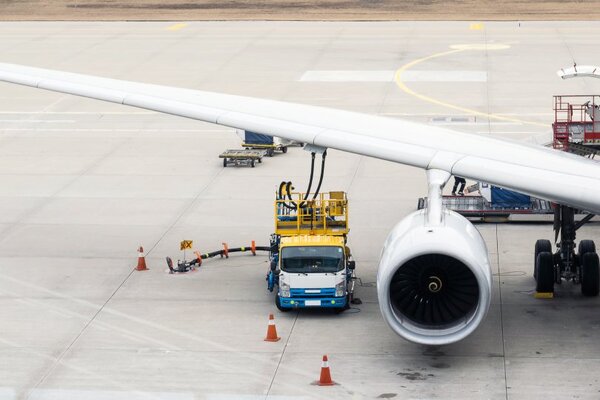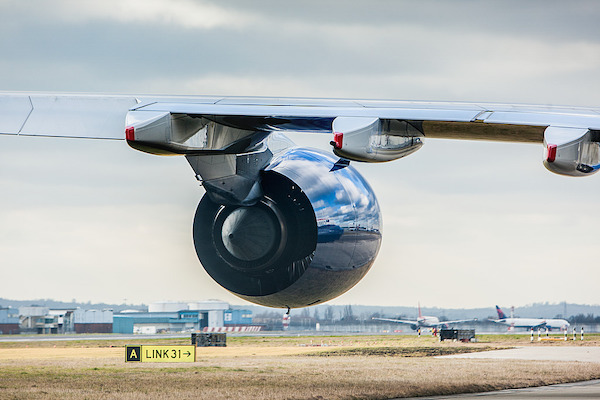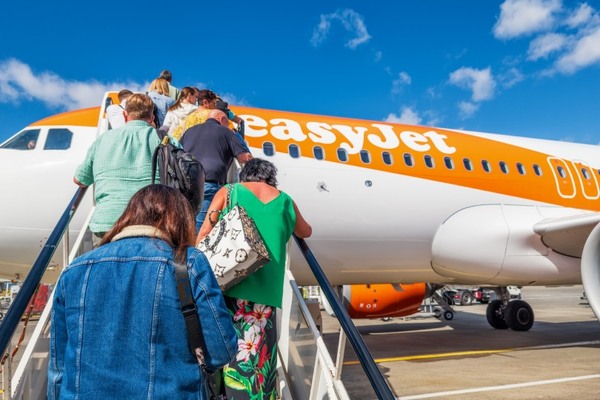‘They're not all sustainable’: Green groups sceptical about forthcoming SAF mandate
Environmental pressure groups have raised concerns about the UK’s forthcoming sustainable aviation fuel (SAF) mandate, which is due this month.
The government will by 26 April confirm how it will compel airlines to use SAF in increasing amounts and instruct fuel suppliers on their obligations.
The announcement may also feature a price stability mechanism to help airlines manage the additional cost of SAF and to boost production.
Campaign groups are highlighting what they claim are pitfalls in the transition towards SAF, particularly SAF produced from waste products.
Speaking on Thursday (11 April) during a briefing hosted by a group of environmental NGOs, Cait Hewitt, Aviation Environment Federation policy director, said SAF should instead be referred to as “Alternative Jet Fuels".
"They’re not all sustainable – they release as much CO2 as kerosene as they burn," she said, adding: "Using meat carcasses and plastics [as source material] is probably not sustainable."
Campaigners argue a SAF mandate will not cap emissions and will merely require a minority of jet fuel to be from feedstock other than fossil fuel.
Under the government’s 2050 Jet Zero Strategy, 17% of the total emissions reduction from aviation is expected to be delivered by increased SAF use. Hewitt said this was “a lot, but not as much as the amount of PR coming from the industry”.
Hewitt predicted the government would bill progress as “guilt-free flying”, adding: “We expect airlines to say they want someone else to pay.”
Campaigners argue for the "polluter pays" principle. “It’s only fair for the industry to cover the cost,” said Hewitt.
However, she admitted the government’s actions were broadly positive. “It at least acknowledges that aviation’s climate problem is not going to be solved by its own agenda,” she said.
‘Proper price’
Campaigners are also concerned about how the SAF mandate will progress. The 10% ambition for 2030 in the UK is higher than the EU’s 6%, but five years later, the UK’s ambition is 18% and the EU’s 20%.
There is also scepticism about the government’s ambition to build five SAF plants, and its aim for construction to get under way by 2025.
The proposed revenue support mechanism to give producers price certainty will need parliamentary legislation, which campaigners say could see construction postponed until 2027 or 2028.
Some believe investment should instead be put into new aircraft design rather than fuels for engines with existing technology.
“Our concern is that we could spend a lot of money and time on the wrong technology,” said Finlay Asher from aviation worker group Safe Landing. “Should we spend money on this versus putting a proper price on kerosene?"
Opponents also argue SAF mandates should be accompanied by demand reduction policies like a tax on frequent fliers, which would also help offset the impact of extra ticket costs on the less wealthy.
They are also concerned airlines will use SAF to justify expansion. They calculate the combined emissions reductions from all new technologies will still need a third less flying than in 2019 to maintain climate targets.
Sign up for weekday travel news and analysis straight to your inbox

Gary Noakes
Supplier Directory
Find contacts for 260+ travel suppliers. Type name, company or destination.













